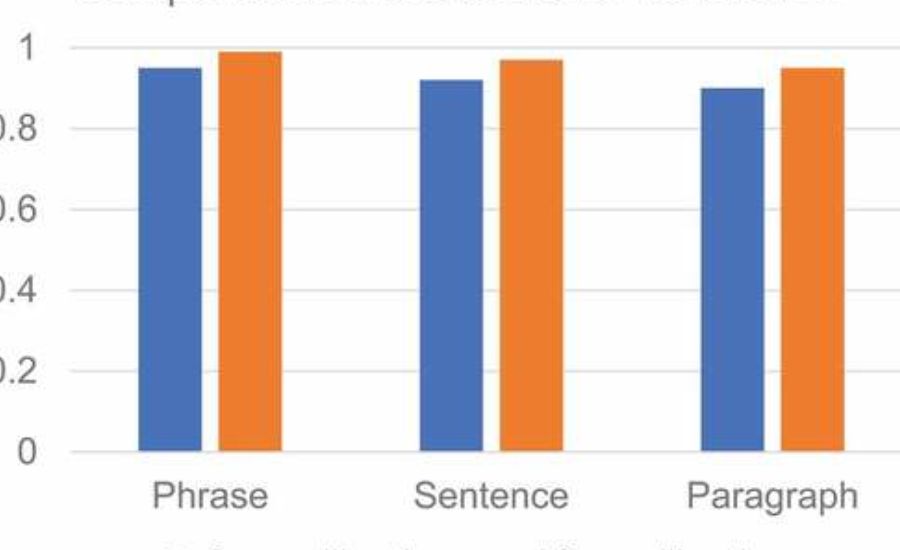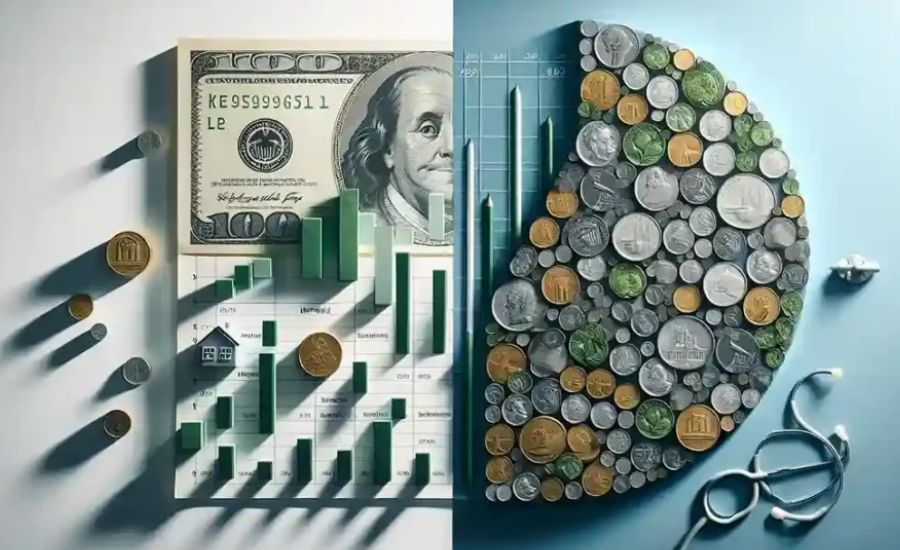https://doi.org/10.1088/1742-6596/1966/1/012029, Superposition, & More
Introduction
Quantum computing is ushering in a transformative era in how we approach information processing, problem-solving, and technology development. Leveraging the principles of quantum mechanics, this field is poised to revolutionize industries by solving complex problems that classical computers simply cannot handle. From advancements in cryptography and drug discovery to optimization challenges, quantum computing is set to unlock possibilities that were once thought to be beyond our reach.
At its core, quantum computing utilizes the unique behaviors of quantum bits (qubits), which can exist in multiple states simultaneously, as opposed to traditional bits that are either 0 or 1. This ability to harness quantum superposition and entanglement allows quantum computers to perform parallel computations at unprecedented speeds. In this article we;ll read about https://doi.org/10.1088/1742-6596/1966/1/012029.
The Foundations of Quantum Computing: Core Principles of Quantum Mechanics

The area of physics known as quantum mechanics studies how matter and energy behave at the atomic and subatomic scales.The principles of quantum mechanics are the driving force behind quantum computing, enabling it to solve problems in ways that classical computers cannot.
1. Wave-Particle Duality:
One of the foundational concepts of quantum mechanics is wave-particle duality, which suggests that all particles, including light, have both wave-like and particle-like properties. This duality allows quantum systems to exhibit unique behaviors, such as superposition, which is a critical aspect of quantum computing.
2. Quantum Entanglement:
Another crucial concept is quantum entanglement, where two or more particles become intertwined in such a way that their properties are directly linked, regardless of the distance separating them. This phenomenon enables quantum computers to perform highly parallel computations, vastly improving their processing power compared to classical systems.
Qubits and Superposition: The Heart of Quantum Computing
In classical computing, information is processed as binary units called bits, which represent a 0 or a 1. However, quantum computers use quantum bits, or qubits, which are fundamentally different.
Superposition is one of the key properties of qubits. Unlike classical bits that can exist in one of two states at a time, qubits can exist in multiple states simultaneously. This property allows quantum computers to process a vast amount of data concurrently, providing a significant advantage over traditional computers.
Mathematically, superposition allows a qubit to be in a state that is a combination of both |0⟩ and |1⟩ states. This capability enables quantum computers to perform complex calculations much faster than classical computers, making them suitable for problems that require immense computational power.
Quantum Gates and Circuits: The Building Blocks of Quantum Computation
Quantum computers employ quantum gates to control qubits, much like classical computers use logic gates to control bits. These gates are the building blocks of quantum circuits, which are used to carry out calculations.
1. Single-Qubit Gates:
Examples include Pauli gates (X, Y, Z) that perform rotations on the Bloch sphere, the mathematical representation of quantum states. These gates are fundamental to manipulating individual qubits.
2. Multi-Qubit Gates:
The CNOT (Controlled-NOT) gate is one of the most commonly used multi-qubit gates, allowing quantum information to be transferred between qubits in a controlled manner. Multi-qubit gates are crucial for creating entanglement and enabling quantum algorithms.
3. Hadamard Gate:
The Hadamard gate is used to create superposition states, a key feature that allows quantum computers to explore many potential solutions at once, enhancing their computational efficiency.
Quantum circuits, built from these gates, allow quantum algorithms to perform tasks that are impossible for classical computers. The universal nature of quantum gates ensures that any quantum computation can be broken down into a sequence of basic gates, enabling the design of powerful quantum algorithms.
Quantum Algorithms and Their Transformational Impact

Compared to classical algorithms, quantum algorithms solve problems more quickly by utilizing the special characteristics of quantum computing.Among the most significant quantum algorithms are Shor’s Algorithm and Grover’s Algorithm.
Shor’s Algorithm: Revolutionizing Cryptography
Developed by mathematician Peter Shor, Shor’s Algorithm is designed to factor large composite numbers exponentially faster than classical algorithms. This has significant implications for cryptography, as many encryption systems—such as RSA—rely on the difficulty of factoring large numbers. Shor’s algorithm can factor a number in polynomial time, specifically O((log N)³), making it a powerful tool for breaking traditional cryptographic methods.
The core of Shor’s algorithm is the Quantum Fourier Transform (QFT), which allows the algorithm to find the period of a specific mathematical function associated with the number being factored. Once the period is determined, classical methods can be used to extract the prime factors, completing the process much faster than classical algorithms.
Grover’s Algorithm: Enhancing Search Efficiency
Another major breakthrough is Grover’s Algorithm, a quantum search algorithm that significantly speeds up the search process for a specific item in an unsorted database. While classical search algorithms require O(N) evaluations to find the target element, Grover’s algorithm can find it using only O(√N) evaluations, offering a quadratic speedup.
Grover’s algorithm utilizes amplitude amplification, a process that enhances the probability of finding the correct solution. The algorithm iterates through several steps, including starting with a uniform superposition state, applying an oracle reflection to mark the target element, and amplifying the probability of the marked target. This iterative process drastically reduces the search time.
Quantum Simulation Algorithms: Advancing Physics and Chemistry
Quantum computers also excel at simulating quantum systems, which is a complex task for classical computers. Quantum simulation algorithms allow researchers to model physical systems with incredible precision, enabling advancements in fields like quantum chemistry and material science.
These algorithms can simulate time evolution in electronic systems, offering a more efficient approach than classical methods like Hartree–Fock and density functional theory. Quantum simulations promise to revolutionize fields such as drug discovery, material science, and physics by enabling simulations that were previously computationally prohibitive.
Challenges in Quantum Computing: Overcoming the Barriers

Despite its immense potential, quantum computing faces several significant challenges that hinder its widespread use and scalability. These hurdles include decoherence, error correction, scalability issues, and hardware limitations.
Decoherence and Error Correction
Quantum systems are highly sensitive to their environments, and decoherence occurs when a qubit loses its quantum state due to external interference. This can lead to errors during computations. Addressing this issue requires developing fault-tolerant quantum systems, which involve creating more stable qubits and better error-correction techniques.
Error correction in quantum computing is far more complex than in classical systems, requiring sophisticated methods to handle phase and bit shifts without the ability to simply replicate qubits.
Scalability and Hardware Limitations
As quantum computers grow in size, connecting a large number of qubits becomes increasingly difficult. The process of scalability—increasing the number of qubits to handle more complex tasks—presents challenges related to qubit interconnection and maintaining coherence. Solutions like quantum error correction codes can help mitigate some of these issues.
Furthermore, creating quantum hardware that can handle millions of qubits is a daunting task. Current quantum computers typically handle up to 1,000 qubits, but larger systems are required for practical, large-scale applications. Building the necessary control systems, cooling systems, and qubit fabrication technologies requires significant innovation across multiple scientific disciplines.
Conclusion: A Bright Future for Quantum Computing
Quantum computing is rapidly evolving, offering unprecedented opportunities in fields ranging from cryptography and drug discovery to material science and optimization. While challenges such as decoherence, error correction, and scalability remain, ongoing research and development are steadily pushing the boundaries of what is possible with quantum systems.
With the potential to solve problems that are intractable for classical computers, quantum computing is not just a theoretical concept, but a game-changing technology that could revolutionize industries worldwide. As we continue to develop this powerful tool, the future of computing looks promising, and quantum systems will undoubtedly play a central role in shaping the scientific and technological landscape of tomorrow.
FAQs on Quantum Computing
1. What is quantum computing? Quantum computing uses the principles of quantum mechanics to perform computations that are vastly more powerful than those possible with classical computers. Unlike classical computers, which use bits (0s and 1s), quantum computers use qubits, which can exist in multiple states simultaneously due to the principles of superposition and entanglement.
2. How do quantum computers work? Quantum computers work by manipulating qubits through quantum gates that operate much like logic gates in traditional computing. These quantum gates allow qubits to exist in superpositions, interact with each other through entanglement, and perform parallel computations. This gives quantum computers the ability to solve certain types of problems much faster than classical computers.
3. What is superposition in quantum computing? Superposition is the ability of a qubit to exist in more than one state at the same time. This allows quantum computers to explore multiple possible solutions at once, vastly increasing their computational power for certain types of problems.
4. What is quantum entanglement? Quantum entanglement is a phenomenon where the state of one qubit is directly connected to the state of another, even if they are far apart. This enables quantum computers to perform computations in parallel, making them more powerful than classical systems.
5. What are quantum gates and circuits? Quantum gates are the building blocks of quantum computing, manipulating qubits in different ways to perform calculations. Just like classical computers use logical gates to process data, quantum computers use quantum gates to transform qubits. Quantum circuits are combinations of quantum gates designed to solve problems.
6. What is Shor’s Algorithm and how does it affect cryptography?A quantum algorithm called Shor’s Algorithm is exponentially quicker than classical methods in factoring big numbers.This has significant implications for cryptography, as many security systems, like RSA encryption, rely on the difficulty of factoring large numbers. If quantum computers can run Shor’s Algorithm, it could potentially break current encryption methods.
7. What is Grover’s Algorithm? Grover’s Algorithm is a quantum search algorithm that speeds up the process of finding a particular item in an unsorted database. While classical algorithms need to evaluate each entry one by one, Grover’s algorithm can find the target much faster, offering a quadratic speedup.
8. How do quantum computers handle simulations? Quantum computers excel at simulating quantum systems, which are difficult for classical computers. They can model physical systems, such as molecules, with greater precision, opening up new possibilities in fields like drug discovery, materials science, and chemistry.
9. What are the main challenges in quantum computing? Quantum computing faces several major challenges, including:
- Decoherence: The loss of quantum states due to interference from the environment.
- Error correction: Quantum systems are prone to errors, and correcting them is more complex than in classical systems.
- Scalability: It’s difficult to increase the number of qubits while maintaining stability and coherence.
- Hardware limitations: Building hardware capable of controlling millions of qubits is a significant technical challenge.
10. What is the future of quantum computing? Despite current challenges, quantum computing holds enormous potential. As research continues, it is expected to revolutionize industries by solving problems in fields like cryptography, drug discovery, material science, and more. The future of quantum computing looks promising as researchers develop better hardware, error correction methods, and scalable systems.
Interesting Facts about Quantum Computing
- Qubits are different from classical bits: Classical computers use bits that are either 0 or 1, while quantum computers use qubits that can exist in multiple states simultaneously, thanks to superposition.
- Quantum entanglement creates instant connections: When qubits are entangled, the state of one qubit is directly related to the state of another, even if they are far apart. This property allows quantum computers to perform parallel computations and solve problems faster than classical systems.
- Quantum algorithms offer huge speedups: Quantum algorithms like Shor’s and Grover’s can solve problems much faster than their classical counterparts. For example, Shor’s Algorithm can factor large numbers in polynomial time, while classical algorithms take exponential time.
- Quantum computers could break current encryption: Shor’s Algorithm could factor large numbers much more efficiently than classical algorithms, posing a potential risk to current encryption systems like RSA, which rely on the difficulty of factoring.
- Quantum simulations are powerful: Quantum computers can simulate quantum systems (such as molecules and materials) much more efficiently than classical computers, enabling breakthroughs in fields like chemistry and drug discovery.
- Quantum computers are still in development: While the potential is immense, current quantum computers are still in the early stages of development, and researchers are working to overcome challenges like error correction and scalability.
- Superposition allows quantum computers to process vast amounts of data: The ability of qubits to exist in multiple states simultaneously allows quantum computers to process and compute large datasets much faster than classical computers.
- Quantum computing could revolutionize industries: Fields such as medicine, material science, cryptography, and optimization could be transformed by quantum computing, which will unlock solutions to problems that are currently intractable for classical computers.
- Quantum error correction is more complex: Unlike classical computers, quantum computers cannot simply duplicate bits to handle errors. Quantum error correction is more intricate and requires specialized techniques to detect and fix errors.
- Quantum computing may require new hardware designs: Quantum computers need specialized hardware, such as cryogenic cooling systems to maintain qubit stability, and complex control circuits to handle large numbers of qubits. Developing these systems requires cross-disciplinary innovation in physics, engineering, and computer science.
For more Information About Blog visit francherway






